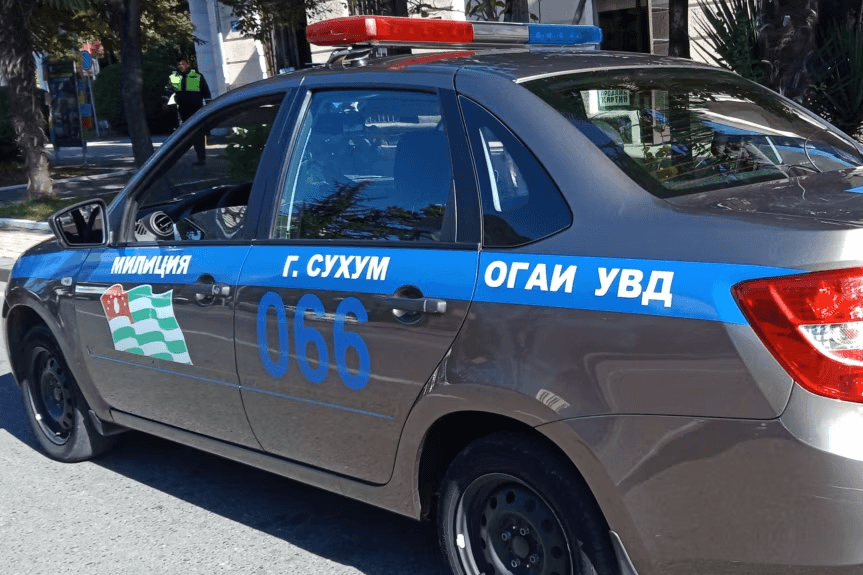
Prosecutors in Abkhazia have launched a criminal investigation into a protest on Tuesday that descended into violence, leaving several journalists injured.
On Wednesday, the Prosecutor General’s Office said they were investigating based on organising and participating in mass riots and using violence against a government official, accompanied by destruction of property.
Tuesday’s demonstration in the centre of the Abkhazian capital, Sukhum (Sukhumi), was organised by opposition leaders and other groups.
At the end of the demonstration, protest leaders announced a list of demands including that procedures begin to remove President Aslan Bzhaniya, constitutional reforms giving parliament the power to appoint the government, and the extension of the current parliament by a year.
Parliamentary elections are currently set for 12 March.
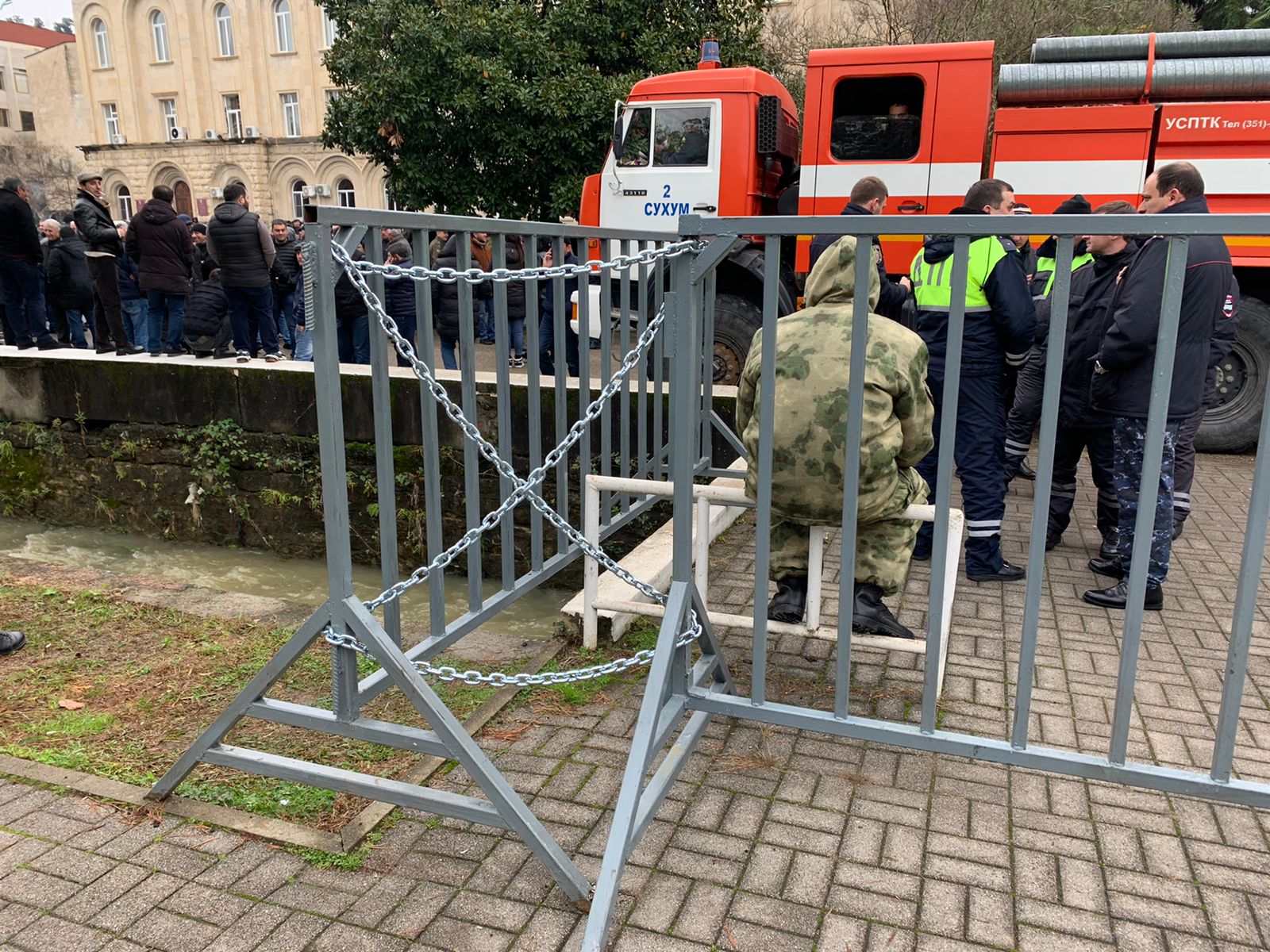
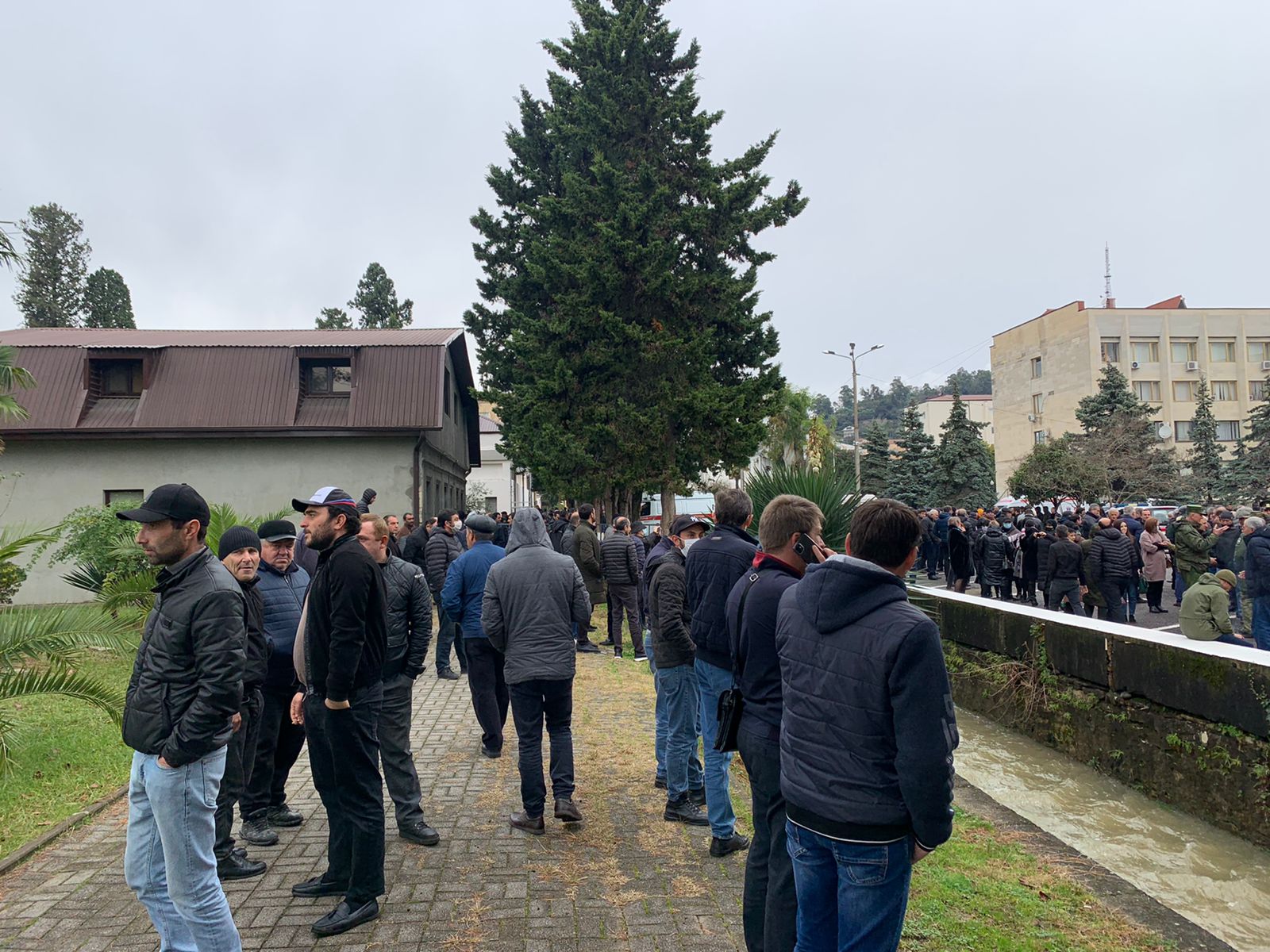
Anger has been brewing in recent months over ongoing electricity shortages, the prospect of privatisations, and a comment by President Aslan Bzhaniya that Abkhazia needed to ‘share sovereignty’ with Russia.
Violence broke out after President Bzhaniya refused calls by protest leaders to address the protesters, citing a prohibition on public events due to the pandemic. Bzhaniya did say he would answer their questions in another format once the situation calmed down.
Following his refusal, protesters marched to the nearby parliament building which was under heavy police protection and surrounded by buses. Protesters attempted to climb and even overturn the buses, with the security forces responding with smoke bombs and stun grenades.
Protesters then began to attack journalists. A camera operator and driver from the Abkhaz State Television and a camera operator at Russian state-owned agency Sputnik were injured.
Following the violence, President Bzhaniya met with several opposition leaders — Adgur Ardzinba, the leader of the united opposition, Timur Gulia, the chair of Aruaa, a veterans organisation, and Akhra Bzhaniya, who heads the Akhatsa public organisation. They were accompanied by the Deputy Speaker of Parliament Mikhail Sangulia.
The meeting was also attended by Prime Minister Alexander Ankvab and Vice President Badra Gunba, and the Head of the Presidential Administration, Alkhas Kvitsiniya.
Following the meeting, protest leaders released a list of demands:
- The initiation of legal proceedings to remove the president;
- A freeze an all energy, property, and foreign policy initiatives the process concludes;
- Amendments to the constitution to transition to a mixed system of electing MPs, with a proportional element;
- Abolishing the post of prime minister;
- A requirement for the government to be approved by parliament;
- Extending the current parliament for one year, due to the pandemic.
Bzhanyia under pressure
A day before the protest, Abkhazian President Aslan Bzhaniya assured the public that the government was open for ‘constructive dialogue’, admitting that ‘many problems remain unresolved’.
Bzhanyia, nevertheless, warned that the problems facing Abkhazia ‘cannot be overcome in a weak economy, in an unstable state shaken with dangerous frequency by political crises’.
He urged people to abstain from participating in ‘yet another irresponsible’ street protest that he insisted threatened to lead Abkhazia’s ‘fragile state to destruction’.
Similar sentiments were voiced by Amtsakhara, the National Front of Abkhazia, and Aytayra parties that day.
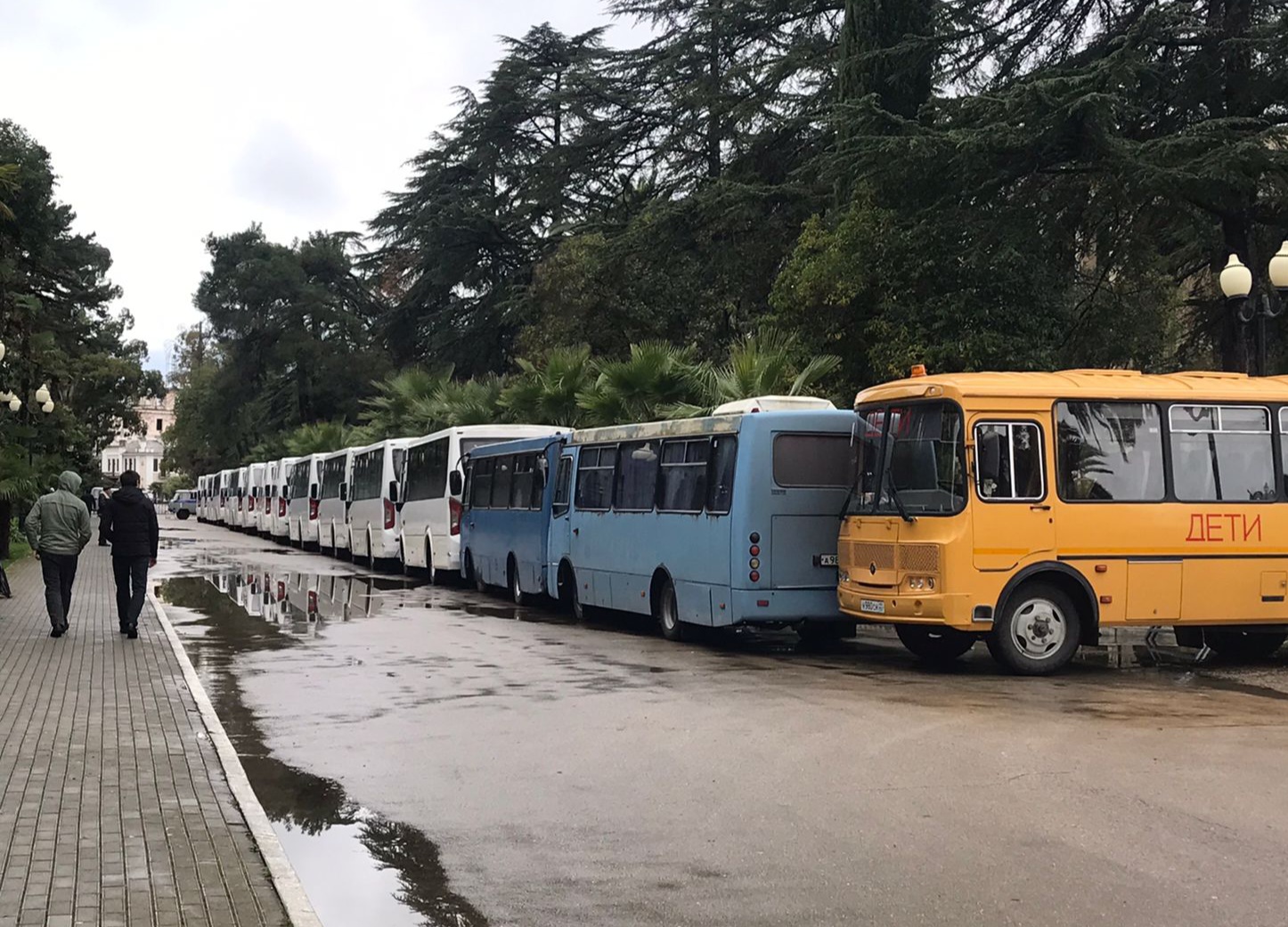
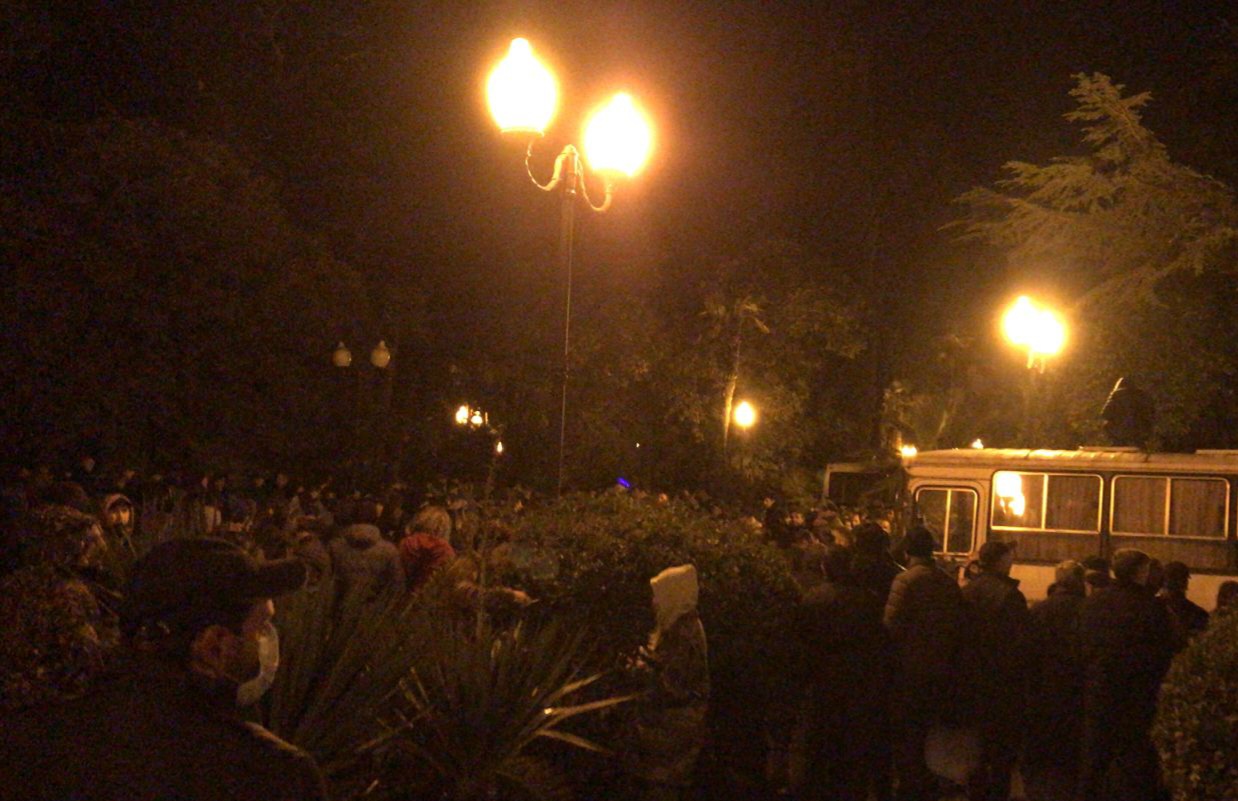
Abkhazia’s Interior Minister Valter Butba and the Head of the State Security Service, Robert Kiut, also appealed to the public on 20 December not to take part in ‘unlawful’ gatherings and warned that the organisers would be responsible for any ‘possible consequences’.
On 15 December, the president also called on Abkhazians to distance themselves from the street demonstration, citing an earlier call by opposition leader Kan Kvarchiya for people to ‘arm’ themselves.
The authorities have been under increased pressure since late September, following a confrontation between police and MPs Almaskhan Ardzinba and Gari Kokaya.
On 17 December, MPs voted down a motion by General Prosecutor Adgur Agrba to have Ardzinba and Kokaya stripped of their immunity. The prosecutor intended to prosecute Kokaya for hooliganism using firearms and offending a representative of the government, and Ardzinba for hooliganism and illegal arms possession.
Agrba called the decision by the lawmakers ‘lawful but unjust’.
Bzhanya also faced harsh criticism after making a statement on 13 November in favour of allowing Russians to buy real estate in Abkhazia and offering ‘shared sovereignty’ of land on which Russian military bases are placed.
The primary geographic terms used in this article are those of the author’s. For ease of reading, we choose not to use qualifiers such as ‘de facto’, ‘unrecognised’, or ‘partially recognised’ when discussing institutions or political positions within Abkhazia, Nagorno-Karabakh, and South Ossetia. This does not imply a position on their status.





